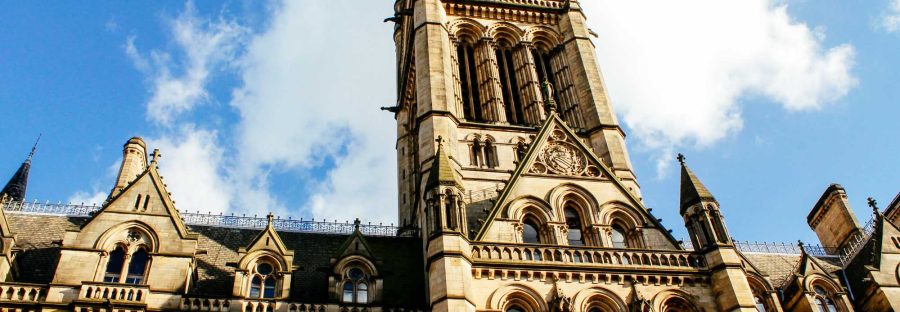What the Greater Manchester mayoral election means for you
- Greater Manchester elects its first-ever mayor today (4 May)
- The mayor will have direct control over the GMP, the fire service and transport
- The mayor will not have direct influence over health and social care
- Labour, The Liberal Democrats, The Green Party, the Conservatives and UKIP have all announced candidates
- The polls open at 7am and close at 10pm
The Greater Manchester mayoral elections are upon us.
Today electors from Greater Manchester’s 10 boroughs (Bolton, Bury, Manchester, Oldham, Rochdale, Salford, Stockport, Tameside, Trafford and Wigan) will cast their votes for the first Greater Manchester mayor.
Whoever the Greater Mancunian public elects will be co-responsible (along with the Greater Manchester Combined Authority) for many aspects of political life within the borough, including transport and the police.
What will the mayor be in charge of?
The mayor will directly control some of Greater Manchester’s public services: their key powers will be over police, fire, housebuilding and transport.
Police
The responsibilities of the Greater Manchester Police & Crime Commissioner will be merged with those of the Mayor, with the former position ceasing to exist. The mayor will exercise the responsibilities of the Police & Crime Commissioner.

The PCC’s responsibilities, soon to be the Mayor’s, include:
- Secure an efficient and effective police force for their area;
- Appoint the Chief Constable, hold them to account for running the force, and if necessary dismiss them;
- Set the police and crime objectives for their area through a police and crime plan;
- Set the force budget and determine the precept;
- Contribute to the national and international policing capabilities set out by the Home Secretary;
- Bring together community safety and criminal justice partners, to make sure local priorities are joined up.
The successful candidate will also establish broad priorities for policing and be held accountable, alongside the chief constable, when things go wrong.
Fire
The mayor will take on the responsibility for exercising the functions that currently rest with the Greater Manchester Fire & Rescue Authority.

The mayor will make budgetary and strategic decisions relating to fire and rescue functions, but will also be able to establish a Fire Committee to help oversee the day-to-day functions of the Fire & Rescue Service.
Transport
The mayor’s main transport duty will be preparing the Local Transport Plan (with agreement of the Plan being subject to two thirds majority approval of the Greater Manchester Combined Authority).

They will also be responsible for the transport budget devolved from central government and, subject to future legislation, regulate bus services and smart ticketing.
Planning and Housing
Greater Manchester’s new mayor powers relating to housing and planning within the region will include control of the £300 million Greater Manchester Housing Investment Fund. They will also be in charge of creating a spatial development strategy for the whole of the Greater Manchester borough.

The mayor’s planning powers, however, won’t override those of local councils and the spatial development strategy cannot be adopted unless it has the unanimous approval of the Members of the Greater Manchester Combined Authority (GMCA).
What is the GMCA and how will it work with the mayor?
The new mayor will not have complete control over Greater Manchester, in fact, there’s a number of areas which their power will be rather limited. For the majority of the day-to-day business, they will have to work in conjunction with the Greater Manchester Combined Authority.
The GMCA was established in 2011, led by the ten council leaders from Greater Manchester’s 10 boroughs.
After a mayor is elected on 4 May, the interim mayor, Tony Lloyd, who has acted as the GMCA’s eleventh member and Chair since 2015, will be replaced by the successful candidate. The ten leaders from each council will form the mayor’s cabinet, but will also continue to lead their own councils.
The Mayor will work with these ten council leaders, their respective councils, local services, the central government and other organisations to pursue shared regional and national goals.
On most day-to-day issues, then, the mayor will be just one of 11 people voting, with a majority needed for a decision to be taken.
How much money is the mayor in charge of, and how much will the mayor cost us?
The mayor will directly be in charge of more than £700m, although the majority of this is for the GMP’s budget, with the rest being divided up between the fire services, transport, infrastructure and housing.
In total, the whole mayoral procedure, from the election itself to future maintenance, will cost £5.4m. This will come out of the reserves currently held by the GMCA.
Per year, the mayor will cost us around £2m. This will be paid for out of business rates, which we have more control over under the newly devolved system of Governance. Basically, if income from business rates increases, Greater Manchester now gets the excess from that.
The rolling yearly bill will cover a variety of things, including the new mayor’s salary, which is yet to be decided, although it is rumoured it could be somewhere in the region of £100,000 a year.
It will also pay for office rent and upkeep, a policy adviser to the mayor and administrative support.
Who are the candidates?
- Labour: Andy Burnham
- Liberal Democrats: Jane Brophy
- Conservatives: Sean Anstee
- UKIP: Shneur Odze
- Green Party: Will Patterson
- English Democrats: Stephen Morris
The Northern Quota will be blogging live from the count from 12pm onwards tomorrow (Friday) and will bring you the result of the votes from all the 10 boroughs as well as analysis of the final result.


